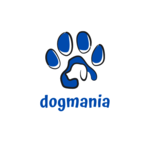As pet owners, we strive to provide the best care for our furry companions, including their dietary needs. However, one aspect often overlooked is the expiration date of their food. Feeding expired food to your dog can pose serious risks to their health and well-being. In this article, we'll explore the dangers associated with feeding your dog expired food and why it's essential to prioritize freshness in their diet.
Understanding Expiration Dates:
Before delving into the risks, it's crucial to understand what expiration dates mean. Expiration dates, also known as "best by" or "use by" dates, indicate the manufacturer's recommendation for the peak quality and freshness of the product. While these dates are not always regulated, they serve as a guideline for consumers to determine the freshness and safety of the food.
The Risks of Expired Dog Food:
1. Nutrient Degradation:
Over time, the nutritional value of dog food can degrade, especially after the expiration date has passed. Essential vitamins, minerals, and other nutrients may break down, leading to a less balanced diet for your pet. Continued consumption of expired food can result in nutritional deficiencies, impacting your dog's overall health and immune system.
2. Rancidity:
Fat content in dog food can undergo oxidation, leading to rancidity when exposed to air and light. Expired food is more prone to rancidity, resulting in a stale or off-putting odor and taste. Rancid food not only lacks palatability but can also cause gastrointestinal upset in dogs, including vomiting and diarrhea.
3. Bacterial Growth:
Expired dog food provides an ideal environment for bacterial growth, particularly if it's been improperly stored. Mold, yeast, and harmful bacteria such as Salmonella and E. coli can proliferate in expired food, posing serious health risks to your dog. Consumption of contaminated food can lead to food poisoning, which manifests as symptoms like vomiting, diarrhea, lethargy, and fever.
4. Toxin Accumulation:
Certain ingredients in dog food, such as grains and meat by-products, may contain toxins that can accumulate over time, especially in expired products. Mycotoxins produced by molds and bacteria, as well as preservatives like ethoxyquin, can pose health hazards to your dog if consumed in large quantities. These toxins can affect various organs, including the liver, kidneys, and nervous system, leading to long-term health complications.
5. Digestive Issues:
Feeding your dog expired food can disrupt their digestive system, leading to gastrointestinal distress and discomfort. Dogs may experience bloating, gas, abdominal pain, and constipation or diarrhea as a result of consuming expired or spoiled food. Prolonged exposure to expired food can exacerbate existing digestive issues or trigger new ones, necessitating veterinary intervention.
Preventing Risks and Ensuring Freshness:
To safeguard your dog's health and prevent the risks associated with expired food, consider the following tips:
1. Check Expiration Dates: Always check the expiration date on the packaging before purchasing dog food. Choose products with a long shelf life and rotate older stock to ensure freshness.
2. Store Properly: Store dog food in a cool, dry place away from direct sunlight and moisture to prevent spoilage and bacterial growth. Use airtight containers to maintain freshness and prevent oxidation.
3. Purchase in Small Quantities: Avoid buying large quantities of dog food that may expire before your pet can consume them. Purchase smaller bags or cans and replenish as needed to minimize waste.
4. Monitor Quality: Regularly inspect the appearance, texture, and odor of your dog's food. Discard any expired or spoiled food immediately and replace it with fresh, unexpired products.
5. Consider Fresh Alternatives: In addition to commercial dog food, consider incorporating fresh, whole foods into your dog's diet, such as lean meats, fruits, and vegetables. These natural options provide essential nutrients and are less likely to spoil quickly.
conclusion
Feeding your dog expired food poses significant risks to their health and well-being, including nutrient degradation, bacterial contamination, toxin accumulation, and digestive issues. Prioritize freshness and quality in your dog's diet by checking expiration dates, storing food properly, monitoring quality, and considering fresh alternatives. By taking proactive measures, you can ensure that your furry friend receives the nourishment they need to thrive and lead a healthy, happy life.



leave me your thoughts here